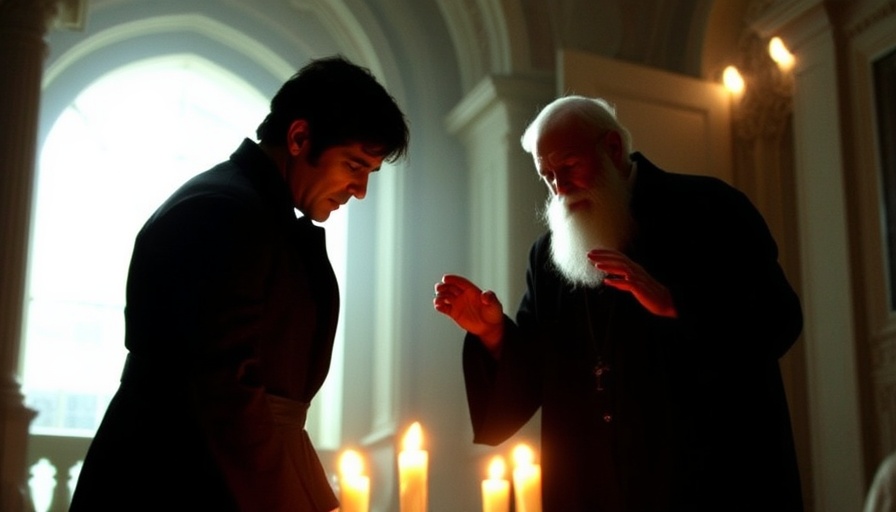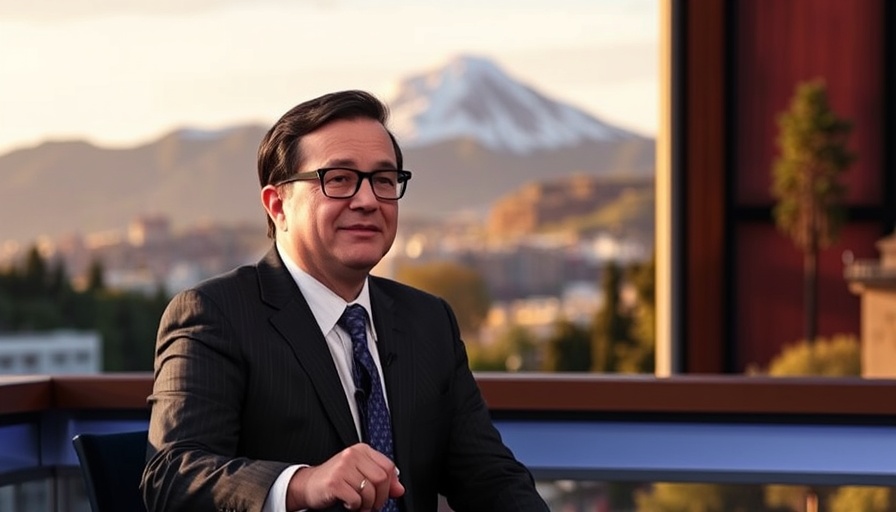
Al Pacino's Role in the Ritual: An Unexpected Representation
In the latest thriller, The Ritual, Al Pacino takes on the role of a priest overseeing an infamous real-life exorcism. The film attempts to delve into deep historical roots while portraying the events surrounding the 1928 exorcism of Emma Schmidt, better known by her alias Anna Ecklund. Though the film aims to engage with the complexities of this dramatic narrative, it unfortunately falls short, resulting in a largely tepid experience.
Dramatic Foundations: Exorcism's Historical Context
The backdrop of the film, based on true events, is set in a nunnery in Iowa where the grim exorcism unfolded. This historical angle presents a unique opportunity for filmmakers to explore the cultural and psychological implications of demonic possession. Yet, the film seems to grapple with its identity, leaning more towards a simplistic horror narrative than a deep exploration of the issues at hand. As noted in the review, rather than addressing the possibility of mental health struggles or childhood trauma influencing the young woman’s actions, the film opts for a more literal interpretation of possession.
The Balance of Horror and Contextual Integrity
While traditional horror films often rely on explosive supernatural elements, The Ritual restricts its storyline to a more subdued atmosphere. This choice distinguishes it from classics like The Exorcist, which thrived on high-tension moments and dramatic portrayals of possession. However, this restraint ultimately detracts from what audiences might expect from a horror film and renders the experience flat. Viewers may find themselves wondering whether the film should have taken a bolder approach towards portraying either the terrifying elements of possession or the psychological aspects surrounding it.
Character Dynamics: A Missed Opportunity for Depth
Pacino's performance appears lackluster, described as a “phoned in” effort, which raises the question of what could have been achieved with deeper character development. Rather than presenting an engaging character arc, both he and Dan Stevens seem disenchanted by their roles. The film misses opportunities for rich dialogue and character interplay that could have contributed to a more engaging viewing experience. Rather than exploring the moral dilemmas faced by priests guiding someone they believe to be possessed, the film opts for a static representation devoid of emotional weight.
Cultural Impact: The Question of Belief and Interpretation
Examining audiences’ reactions, works like The Ritual prompt discussions on how society perceives exorcisms and mental health. Religious narratives tend to dominate the portrayal of supernatural occurrences, but modern interpretations invite scrutiny into these beliefs and how they affect real lives. If a film wishes to stay true to the historical bearing of exorcisms, it could benefit from exploring the broader context of belief systems and the societal stigma surrounding mental health—an increasingly relevant conversation today.
Grappling with Reality: Should We Reimagine the Exorcism?
A critical takeaway from The Ritual is its hesitance to break from conventional narratives of possession. As our understanding of mental health evolves, representations in media also need to shift from simplistic portrayals of demonic influences to considering the complexities of psychological experiences. Greater attention to this shift in narrative might yield stories resonant with audiences seeking more than just scares; they want connection, understanding, and realism.
Ultimately, while The Ritual presents itself as a thoughtful introspection of a dark historical moment, its execution and character depth leave much to be desired. It serves as a reminder for filmmakers to engage meaningfully with their subject matter, especially when navigating sensitive historical narratives and their modern interpretations.
 Add Row
Add Row  Add
Add 




Write A Comment